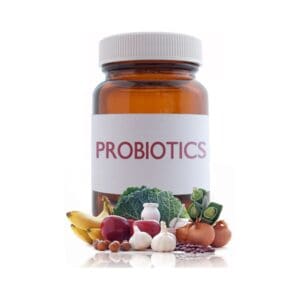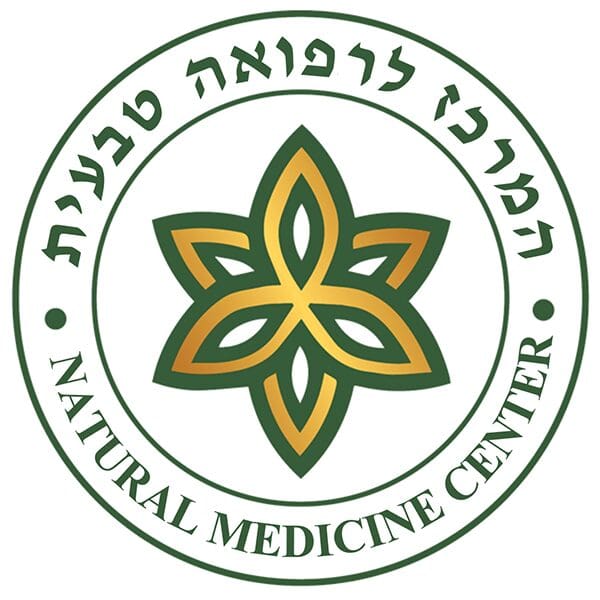פרוביוטיקה – Probiotics
כיצד נדע לבחור תוסף פרוביוטיקה איכותי?
ראשית קצת רקע – מקור המילה “פרוביוטיק” מיוונית ופירושו המילולי “למען החיים”. חיידקי הפרוביוטיקה הינם חיידקים ידידותיים אשר ממוקמים במע’ העיכול. החיידקים חיוניים ביותר וממלאים תפקידים חשובים בשלל מערכות הגוף. כגון – פעילות תקינה של המעיים (שלשולים, עצירות, גאזים ונפיחות), הכרחיים לעיכול וספיגה של רכיבי המזון, ייצור אנזימים וויטמינים שונים (K, B8, B12), הסדרת חומציות המעיים, חיזוק המערכת החיסונית וכן גם “מלחמה” עם פתוגנים ומזהמים שונים כאשר אלו מתגברים בגוף כגון פטרת הקנדידה, הליקובקטר פילורי, חיידקי סלמונלה, וירוס הרוטה, אמבות ויצורים חד תאים נוספים. אצל אדם בוגר קיימים למעלה מ 500 זנים שונים של חיידקים והם נמצאים בריכוז גבוה גם במע’ השתן ובכך מסייעים גם כנגד דלקות וצריבות בדרכי השתן ועוד.
10 התפקידים עיקריים של החיידקים הפרוביוטיים:
- חיזוק מע’ החיסון באופן כללי ומע’ העיכול בפרט.
- סילוק פסולת רעלנית שמיוצרת ע”י פתוגנים, ריסוסים, תרופות ועוד.
- מניעת נזקי “תרופת” אנטיביוטיקה – חשוב מאוד ליטול יחד עם נטילת אנטיביוטיקה את הפרוביוטיקה להשבת האיזון. (הערה: על כל כמוסה של אנטיביוטיקה יש ליטול כנגד כמוסה אחת של פרוביוטיקה איכותית, כמו כן מומלץ ליטול את הפרוביוטיקה כשעתיים לאחר נטילת התרופה, ולהמשיך ליטול לפחות עוד כשבועיים ימים לאחר סיום הטיפול האנטיביוטי).
- לסובלים מזיהום פתוגני כגון – הליקובקטר פילורי, קנדידה, תולעים ושאר טפילים.
- לסובלים מעצירות – עוזר לאיזון הפריסטלטיקה הטבעית.
- לסובלים מיציאות רכות ומרובות – מסייע לפירוק וספיגת המזון.
- לסובלים מנפיחות ביטנית, לתסמונת המעי הרגיש IBS, לחולי צליאק, לחולי מעי דלקתי IBD (קרוהן/קוליטיס/גסטריטיס/דברטיקוליטיס).
- טיפול תומך במחלות עור – אקזמה אטופית (אטופיק דרמטיטיס), סבוריאה, פסוריאזיס ואקנה.
- עזרה כנגד וירוס ה”רוטה” במיוחד אצל תינוקות הגורם לשלשולים והקאות.
- הפחתת ריח רע מהפה – ע”י איזון פלורת המעיים ועזרה בפירוק המזון.
קליטה וספיגה בגופנו:
בעיקרון גופנו מייצר את החיידקים הפרוביוטיים. החיידקים מתפתחים ומשגשגים מרכיבי תזונה ספציפיים, ואם נרצה לתגבר אותם באופן טבעי נקפיד לצרוך את המזונות הבאים: סיבים תזונתיים (במיוחד פרוקטואוליגוסכרידים FOS- הנמצאים בקליפת תפו”ע, אגס פקטין פירות הדר ועוד). דגנים מלאים ובמיוחד שיבולת שועל, קטניות, ירקות ופירות. גם מוצרי חלב מותססים יגבירו את כמות החיידקים הפרוביוטיים כיוון שאלו חיוניים שם בתהליך התסיסה. ככול שהמוצר מותסס יותר (יוגורט, לבׇּנֶה, קוטג’) הוא יכיל יותר חיידקים.
מס’ דגשים בבחירת התוסף הפרוביוטי:
- כמות החיידקים לפחות 5 מיליארד (“ביליון”) בכל כמוסה.
- יש להעדיף תוסף עם מס’ זנים שנחקרו מדעית (מרבית החברות הטובות מספקות ארבעה עד עשרה זנים) ולהעדיף חברה שכותבת את שמות הזנים על הצנצנת.
- עדיפות לציפוי אנטרי או מיקרוקפסולציה העוקף את חומציות הקיבה ומתפרק ישירות במעיים.
- יתרון נוסף חלק מהחברות מוסיפות גם FOS (מצע של סיבים) לכמוסה – דבר אשר יגרום להשרשה טובה יותר במעי.
- לרגישים/לאלרגים לחלב יש פורמולות פרווה על בסיס צמחי.
- מומלץ לשמור את התוסף (שמגיע בצנצנת) בקירור לאחר הפתיחה.
מינונים מומלצים:
תחזוקתי: 5-12 מיליארד חיידקים במהלך היום, עדיפות בשעות הבוקר.טיפולי: 12-50 מיליארד חיידקים לחלק במהלך היום.
הערה: לעיתים בימים הראשונים יתכן ויופיעו גאזים ונפיחויות במע’ העיכול, תופעה זו ידועה ונובעת מהסיבה שפלורת המעיים מתחילה להשתנות. להפחתת הסימפטום ניתן ליטול את התוסף לאחר האוכל.
כתיבה ועריכה:
אמיר לוי, נטורופת והרבליסט קליני – מנהל המרכז לרפואה טבעית – www.medicalherbs.co.il

- Hill C, Guarner F, Reid G, Gibson GR, Merenstein DJ, Pot B, et al. The International Scientific Association for Probiotics and Prebiotics consensus statement on the scope and appropriate use of the term probiotic. Nat Rev Gastroenterol Hepatol 2014;11:506-14.
- Gibson GR, Hutkins R, Sanders ME, Prescott SL, Reimer RA, Salminen SJ, et al. Expert consensus document: The International Scientific Association for Probiotics and Prebiotics (ISAPP) consensus statement on the definition and scope of prebiotics. Nat Rev Gastroenterol Hepatol 2017;14:491-502.
- World Gastroenterology Organisation. Probiotics and prebiotics. 2017.
- Zmora N, Zilberman-Schapira G, Suez J, Mor U, Dori-Bachash M, Bashiardes S, et al. Personalized Gut Mucosal Colonization Resistance to Empiric Probiotics Is Associated with Unique Host and Microbiome Features. Cell 2018;174:1388-405.e21.
- Sanders ME. Probiotics in 2015: their scope and use. J Clin Gastroenterol 2015;49 Suppl 1:S2-6.
- Sanders ME. Clinical use of probiotics: what physicians need to know. Am Fam Physician 2008;78:1026.
- Kailasapathy K, Chin J. Survival and therapeutic potential of probiotic organisms with reference to Lactobacillus acidophilus and Bifidobacterium spp. Immunol Cell Biol 2000;78:80-8.
- Hogan DE, Ivanina EA, Robbins DH. Probiotics: a review for clinical use. Gastroenterology & Endoscopy News 2018:1-7.
- National Institutes of Health. Dietary Supplement Label Database. 2018.
- Szajewska H, Guarino A, Hojsak I, Indrio F, Kolacek S, Shamir R, et al. Use of probiotics for management of acute gastroenteritis: a position paper by the ESPGHAN Working Group for Probiotics and Prebiotics. J Pediatr Gastroenterol Nutr 2014;58:531-9.
- Food and Drug Administration. Policy regarding quantitative labeling of dietary supplements containing live microbials: Guidance for industry. 2018.
- Avena-Woods C. Overview of atopic dermatitis. Am J Manag Care 2017;23:S115-S23.
- Li L, Han Z, Niu X, Zhang G, Jia Y, Zhang S, et al. Probiotic supplementation for prevention of atopic dermatitis in infants and children: a systematic review and meta-analysis. Am J Clin Dermatol 2018.
- Szajewska H, Horvath A. Lactobacillus rhamnosus GG in the primary prevention of eczema in children: a systematic review and meta-analysis. Nutrients 2018;10.
- Huang R, Ning H, Shen M, Li J, Zhang J, Chen X. Probiotics for the treatment of atopic dermatitis in children: a systematic review and meta-analysis of randomized controlled trials. Front Cell Infect Microbiol 2017;7:392.
- Zhao M, Shen C, Ma L. Treatment efficacy of probiotics on atopic dermatitis, zooming in on infants: a systematic review and meta-analysis. Int J Dermatol 2018;57:635-41.
- Makrgeorgou A, Leonardi-Bee J, Bath-Hextall FJ, Murrell DF, Tang ML, Roberts A, et al. Probiotics for treating eczema. Cochrane Database Syst Rev 2018;11:CD006135.
- Guarino A, Ashkenazi S, Gendrel D, Lo Vecchio A, Shamir R, Szajewska H, et al. European Society for Pediatric Gastroenterology, Hepatology, and Nutrition/European Society for Pediatric Infectious Diseases evidence-based guidelines for the management of acute gastroenteritis in children in Europe: update 2014. J Pediatr Gastroenterol Nutr 2014;59:132-52.
- Allen SJ, Martinez EG, Gregorio GV, Dans LF. Probiotics for treating acute infectious diarrhoea. Cochrane Database Syst Rev 2010:CD003048.
- Caffarelli C, Cardinale F, Povesi-Dascola C, Dodi I, Mastrorilli V, Ricci G. Use of probiotics in pediatric infectious diseases. Expert Rev Anti Infect Ther 2015;13:1517-35.
- Szajewska H, Skorka A, Ruszczynski M, Gieruszczak-Bialek D. Meta-analysis: Lactobacillus GG for treating acute gastroenteritis in children–updated analysis of randomised controlled trials. Aliment Pharmacol Ther 2013;38:467-76.
- Feizizadeh S, Salehi-Abargouei A, Akbari V. Efficacy and safety of Saccharomyces boulardii for acute diarrhea. Pediatrics 2014;134:e176-91.
- Freedman SB, Williamson-Urquhart S, Farion KJ, Gouin S, Willan AR, Poonai N, et al. Multicenter Trial of a Combination Probiotic for Children with Gastroenteritis. N Engl J Med 2018;379:2015-26.
- Schnadower D, Tarr PI, Casper TC, Gorelick MH, Dean JM, O’Connell KJ, et al. Lactobacillus rhamnosus GG versus Placebo for Acute Gastroenteritis in Children. N Engl J Med 2018;379:2002-14.
- Ki Cha B, Mun Jung S, Hwan Choi C, Song ID, Woong Lee H, Joon Kim H, et al. The effect of a multispecies probiotic mixture on the symptoms and fecal microbiota in diarrhea-dominant irritable bowel syndrome: a randomized, double-blind, placebo-controlled trial. J Clin Gastroenterol 2012;46:220-7.
- Silverman MA, Konnikova L, Gerber JS. Impact of antibiotics on necrotizing enterocolitis and antibiotic-associated diarrhea. Gastroenterol Clin North Am 2017;46:61-76.
- Blaabjerg S, Artzi DM, Aabenhus R. Probiotics for the prevention of antibiotic-associated diarrhea in outpatients-a systematic review and meta-analysis. Antibiotics (Basel) 2017;6.
- Jafarnejad S, Shab-Bidar S, Speakman JR, Parastui K, Daneshi-Maskooni M, Djafarian K. Probiotics reduce the risk of antibiotic-associated diarrhea in adults (18-64 years) but not the elderly (>65 years): a meta-analysis. Nutr Clin Pract 2016;31:502-13.
- Szajewska H, Kolodziej M. Systematic review with meta-analysis: Saccharomyces boulardii in the prevention of antibiotic-associated diarrhoea. Aliment Pharmacol Ther 2015;42:793-801.
- Staudacher HM, Whelan K. Altered gastrointestinal microbiota in irritable bowel syndrome and its modification by diet: probiotics, prebiotics and the low FODMAP diet. Proc Nutr Soc 2016;75:306-18.
- Zhuang X, Xiong L, Li L, Li M, Chen M. Alterations of gut microbiota in patients with irritable bowel syndrome: A systematic review and meta-analysis. J Gastroenterol Hepatol 2017;32:28-38.
- Ford AC, Quigley EM, Lacy BE, Lembo AJ, Saito YA, Schiller LR, et al. Efficacy of prebiotics, probiotics, and synbiotics in irritable bowel syndrome and chronic idiopathic constipation: systematic review and meta-analysis. Am J Gastroenterol 2014;109:1547-61; quiz 6, 62.
- Didari T, Mozaffari S, Nikfar S, Abdollahi M. Effectiveness of probiotics in irritable bowel syndrome: Updated systematic review with meta-analysis. World J Gastroenterol 2015;21:3072-84.
- Lorenzo-Zuniga V, Llop E, Suarez C, Alvarez B, Abreu L, Espadaler J, et al. I.31, a new combination of probiotics, improves irritable bowel syndrome-related quality of life. World J Gastroenterol 2014;20:8709-16.
- Williams EA, Stimpson J, Wang D, Plummer S, Garaiova I, Barker ME, et al. Clinical trial: a multistrain probiotic preparation significantly reduces symptoms of irritable bowel syndrome in a double-blind placebo-controlled study. Aliment Pharmacol Ther 2009;29:97-103.



